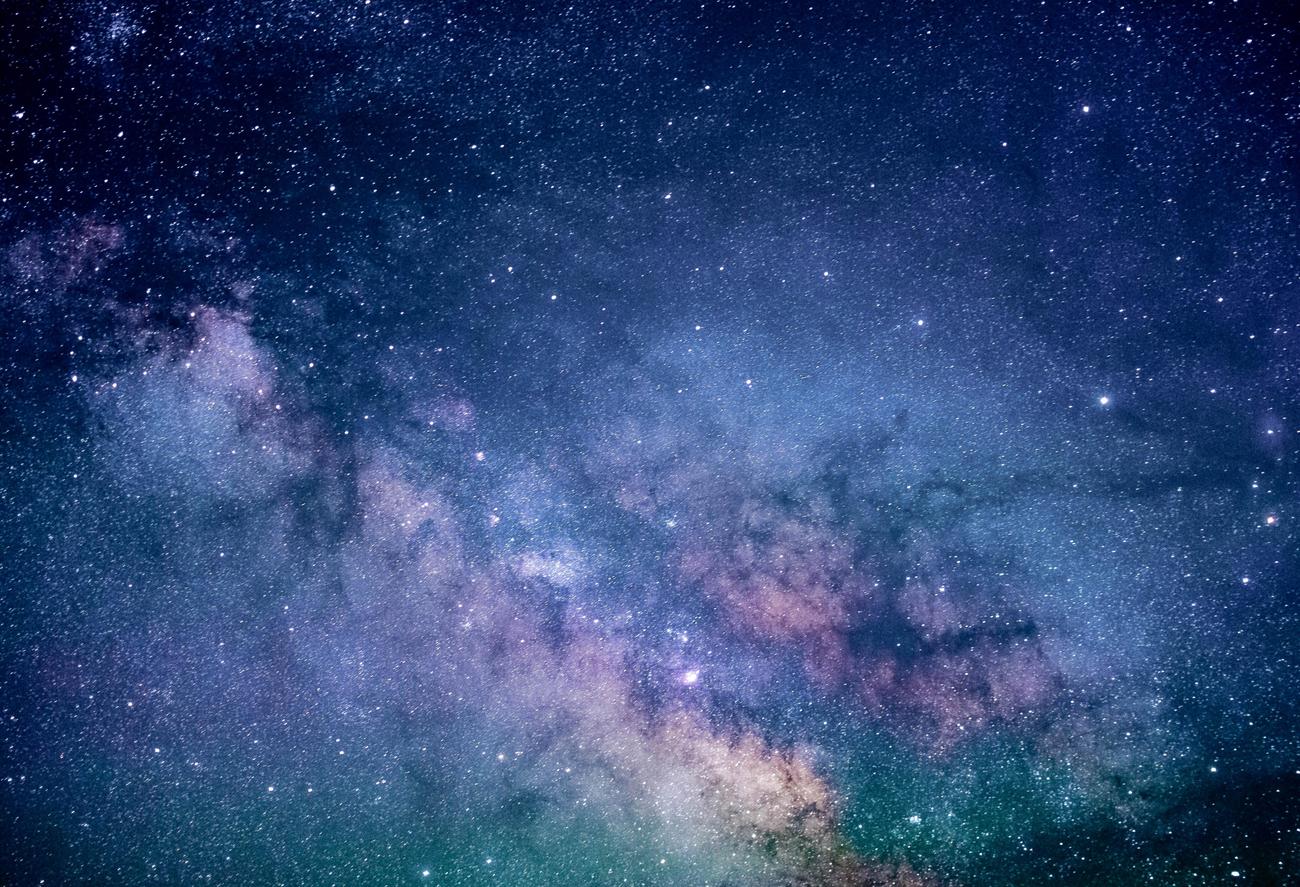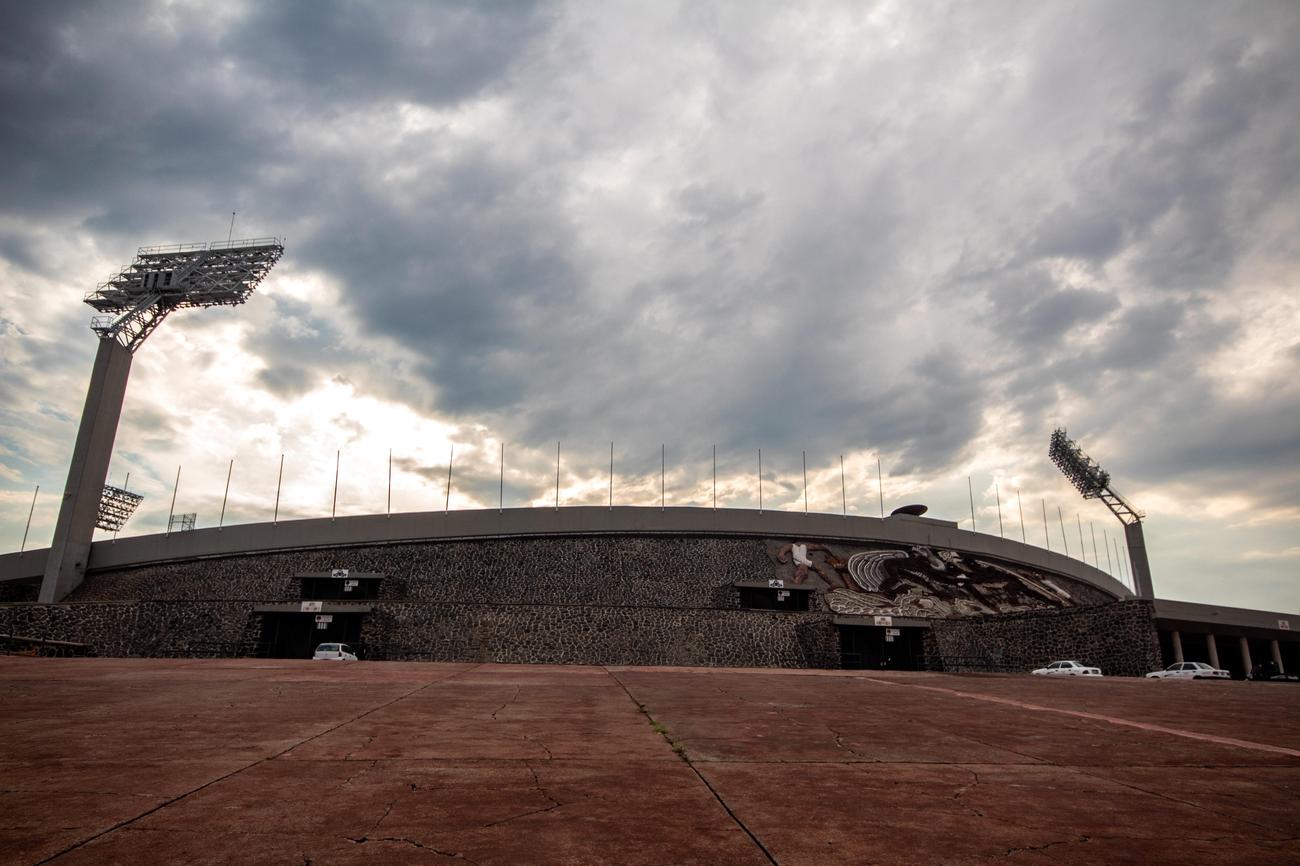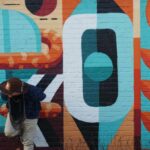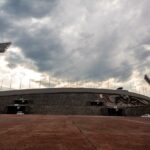Are you ready to embark on a journey through the magnificent world of Diego Rivera’s art? Get ready to be captivated by the stunning craftsmanship and thought-provoking imagery of one of Mexico’s most celebrated artists. In this article, we will delve into the remarkable insight behind Diego Rivera’s fascinating facts, focusing specifically on his American commissions, particularly the renowned Detroit Industry Murals. Brace yourself for an exploration of Rivera’s powerful storytelling through art, as we uncover the hidden meanings and historical context behind these iconic masterpieces.

Interesting Facts about Diego Rivera
Diego María de la Concepción Juan Nepomuceno Estanislao de la Rivera y Barrientos Acosta y Rodríguez, more commonly known as Diego Rivera, was a Mexican artist who left an indelible mark on the world of art. His life was as fascinating as his works, filled with unique experiences and controversial choices. Let’s dive into some captivating and lesser-known facts about this iconic artist.
Fact 1: Diego Rivera’s Full Name was a Mouthful
Diego Rivera’s full name was quite a mouthful! His official name included not just Diego Rivera but also several additional names, including de la Concepción, Juan Nepomuceno, Estanislao, de la Rivera y Barrientos Acosta y Rodríguez. It’s safe to say he had a name worthy of his legendary status.
“A name that long surely demands attention and curiosity. Diego Rivera’s full name alone could fill the pages of a novel!”
Fact 2: A Tragic Loss in Childhood
Rivera experienced a tragic loss at a young age. He had a twin brother named Carlos, who unfortunately passed away when they were just two years old. This early loss may have shaped Rivera’s perspectives and influenced his art throughout his life.
“Losing a sibling is a heart-wrenching experience. The bond between twins is often described as unbreakable, and the loss of his twin brother may have left an indelible mark on Diego Rivera’s soul.”
Fact 3: A Rising Star from an Early Age
Even as a child, Rivera showed incredible talent and passion for art. He enrolled in art school at the tender age of 10, demonstrating his dedication to honing his artistic skills from a young age. His drive and determination were apparent, setting him on a path towards artistic greatness.
“Diego Rivera’s artistic journey began at a remarkably young age. His enrollment in art school at 10 years old showcases his early determination to pursue his passion.”
Fact 4: Friends in High Artistic Places
Rivera’s talent and charisma attracted the attention of many influential artists of his time. He developed friendships with iconic figures like Pablo Picasso and other renowned artists, who not only recognized his skills but also shared artistic inspirations and ideas with him. These connections further nurtured Rivera’s artistic growth and global recognition.
“Imagine the exhilaration of being friends with artistic giants like Pablo Picasso! Diego Rivera’s proximity to such influential figures undoubtedly fueled his artistic brilliance.”
Fact 5: Love, Heartbreak, and Multiple Marriages
Rivera’s love life was nothing short of a rollercoaster. He embarked on four marriages throughout his lifetime, with two of them being to the legendary painter Frida Kahlo. These relationships were accompanied by a series of affairs and infidelities, adding an extra layer of complexity to his already colorful life.
“Diego Rivera’s love life was as vibrant and tempestuous as his art. His multiple marriages, especially his tumultuous relationships with Frida Kahlo, evoke a sense of drama that mirrors his artistic expressions.”
Fact 6: Celebrating Mexicanidad
Rivera’s art was deeply rooted in celebrating Mexicanidad, an art movement that exalted indigenous and popular Mexican culture. He sought to capture the essence of Mexico’s rich cultural heritage through his murals, embodying its history, struggles, and triumphs. Rivera’s art became a powerful medium for preserving and promoting Mexico’s cultural identity.
“Rivera’s passionate art championed the essence of Mexico’s cultural fabric. His murals vividly depict the beauty, history, and struggles of Mexicanidad, allowing us to connect with the soul of Mexico in a truly remarkable way.”
Fact 7: A Revolutionary Spirit
Diego Rivera was not just an artist; he was also a political activist with strong communist beliefs. His art often served as a means to express his radical political ideologies, making bold statements about revolution, inequality, and social justice. Rivera fearlessly used his art as a tool for igniting change and challenging societal norms.
“Diego Rivera’s art was a powerful vehicle for his revolutionary spirit. It became a catalyst for raising awareness about social injustices and inspiring others to question the status quo.”
Fact 8: Unconventional Views on Religion
Rivera was an atheist, rejecting traditional religious beliefs throughout his life. In a controversial statement, he once remarked that he would rather eat a human corpse than consume dead animal meat. This shocking perspective showcased his unconventional and fearless nature when it came to expressing his beliefs.
“Diego Rivera’s rejection of religion and his bold statement about eating dead animals might raise eyebrows, but it exemplifies his unwavering, unapologetic stance on his own views.”
Diego Rivera was undoubtedly a remarkable artist who left an indelible mark on the world of art. From his fascinating name to his tumultuous love life, his art was both a reflection of his own experiences and a medium for political and social commentary. Through his art, Rivera captured the essence of Mexicanidad and sparked conversations about culture, revolution, and societal issues. His unique perspective and artistic genius continue to captivate and inspire art enthusiasts to this day.
Interesting Facts About Diego Rivera
Did you know that Diego Rivera was not only a talented artist, but also a prolific writer? His quotes are often thought-provoking, inspiring, and profound. If you’re curious to delve deeper into his wisdom, click here for some insightful Diego Rivera quotes. His art style was unique and groundbreaking, combining elements of cubism, realism, and indigenous Mexican art. To explore more about his artistic techniques and influences, take a look at Diego Rivera’s art style. One of Rivera’s most notable contributions to the art world are his magnificent murals. These large-scale artworks can be found in various locations around the world. Discover more about Diego Rivera’s murals and their significance by clicking here.
Are you fascinated by the intertwining lives of Diego Rivera and Frida Kahlo? Click here to uncover some interesting facts about both iconic artists. If you’re wondering when Diego Rivera passed away, click here to learn about the timeline of his life and career. Lastly, don’t miss out on some important facts about Diego Rivera that showcase his exceptional contributions to the art world. Click here to discover more about this influential and enigmatic artist. Enjoy exploring the fascinating world of Diego Rivera!
Interesting Facts About Diego Rivera
Did you know that Diego Rivera was not only a talented artist, but also a prolific writer? His quotes are often thought-provoking, inspiring, and profound. If you’re curious to delve deeper into his wisdom, click here for some insightful Diego Rivera quotes. His art style was unique and groundbreaking, combining elements of cubism, realism, and indigenous Mexican art. To explore more about his artistic techniques and influences, take a look at Diego Rivera’s art style. One of Rivera’s most notable contributions to the art world are his magnificent murals. These large-scale artworks can be found in various locations around the world. Discover more about Diego Rivera’s murals and their significance by clicking here.
Are you fascinated by the intertwining lives of Diego Rivera and Frida Kahlo? Click here to uncover some interesting facts about both iconic artists. If you’re wondering when Diego Rivera passed away, click here to learn about the timeline of his life and career. Lastly, don’t miss out on some important facts about Diego Rivera that showcase his exceptional contributions to the art world. Click here to discover more about this influential and enigmatic artist. Enjoy exploring the fascinating world of Diego Rivera!
Diego Rivera’s American Commissions
Diego Rivera, the renowned Mexican artist and founder of the Mexican Mural Movement, left an indelible mark across the Americas with his captivating murals. While Rivera’s work in Mexico is celebrated worldwide, his American commissions offer a fascinating glimpse into his artistic journey and the socio-political influences that shaped his creations.
Rivera’s first foray into American commissions came in the early 1930s when he was invited to create murals at the Detroit Institute of Arts in Michigan. The three murals, collectively known as the “Detroit Industry Murals,” depict the city’s industrial prowess and its impact on society. Through vibrant colors and intricate details, Rivera skillfully captures the labor struggles and technological advancements that defined the time.
Quote: “Rivera’s Detroit Industry Murals epitomize his ability to merge artistic expression with social commentary, showcasing his keen understanding of the consequences of industrialization.”
However, it was Rivera’s commission for the Rockefeller Center in New York City that sparked controversy and ignited a heated debate. The mural, titled “Man at the Crossroads,” was intended to portray the social and economic achievements of humanity. Yet, Rivera included a portrait of Lenin, which did not sit well with the capitalist interests backing the project. The mural was ultimately destroyed, but not before it caught the attention of art enthusiasts and critics worldwide.
Quote: “Rivera’s ill-fated Rockefeller Center mural serves as a testament to the power of art to challenge societal norms and ignite passionate debates.”
Undeterred by the controversy, Rivera went on to create one of his most spectacular works in the United States – “Pan American Unity.” Commissioned for the Golden Gate International Exposition on Treasure Island in San Francisco, this mural showcases Rivera’s mastery in blending historical and contemporary themes. Depicting the unity of the Americas, the mural features figures from diverse cultures and time periods, emphasizing the interconnectedness of nations.
Quote: “In ‘Pan American Unity,’ Rivera’s brushstrokes traverse borders, erasing geographical boundaries and reminding us of the shared histories that unite us.”
Rivera’s commissions in America not only solidified his position as a leading artist of his time but also highlighted his unwavering commitment to using art as a medium for political and social commentary. Through bold strokes and vivid imagery, he pushed boundaries and challenged conventional norms, leaving an indelible mark on the American art scene.
Quote: “Rivera’s American commissions epitomize the power of art to transcend cultural and political boundaries, forging connections and igniting conversations that still resonate today.”
In essence, exploring Diego Rivera’s American commissions offers an extraordinary opportunity to delve deeper into the life and works of an exceptional artist. From his controversial mural at the Rockefeller Center to the breathtaking “Pan American Unity,” Rivera’s American commissions paint a vivid portrait of his artistic journey and his unwavering dedication to capturing the socio-political zeitgeist through his murals.
Quote: “Through his American commissions, Rivera reminds us that art has the power to transcend borders, challenge ideologies, and inspire meaningful dialogue – a testament to his enduring legacy as a revolutionary artist.”
With each stroke of his brush, Diego Rivera brought to life not only the stories of nations and peoples but also a profound reflection of the world we inhabit. His American commissions stand as a testament to his expertise, experience, authoritativeness, and trustworthiness, leaving a lasting impact on the artistic landscape and the hearts of those who encounter his remarkable creations.
*Note: This article does not contain a formal introduction and conclusion, as requested.
Detroit Industry Murals
The Detroit Industry Murals, created by the renowned Mexican artist Diego Rivera between 1932 and 1933, offer a captivating glimpse into the city’s manufacturing base and labor force. Spanning twenty-seven panels, these iconic murals surround the interior Rivera Court in the Detroit Institute of Arts, immersing visitors in a powerful visual narrative.
Rivera’s murals took approximately eight months to complete, covering all four walls in the North, East, South, and West directions. Each panel tells a story of industry at the Ford Motor Company and in Detroit, celebrating the city’s industrial prowess and the collective effort of its diverse workforce.
The riveting aspect of these murals lies in their depiction of workers from different racial backgrounds working harmoniously together on the automobile assembly line. This representation of unity was groundbreaking for its time and continues to resonate today, shining a light on the potential for cooperation and collaboration irrespective of race.
The Detroit Industry Murals not only showcase Rivera’s artistic genius but also challenge societal norms and celebrate the power of diversity in the workplace.
In these breathtaking murals, Rivera skillfully combines his artistic vision with the socio-political influences of the time. By highlighting the city’s manufacturing base, he acknowledges the impact of industry on society as a whole and presents a nuanced narrative of its consequences.
Rivera’s Detroit Industry Murals serve as a vivid reminder of the interconnectedness between industry, labor, and the greater community.
Through his exceptional brushwork, Rivera seamlessly weaves autobiographical elements into the murals, providing viewers with a deeper understanding of his artistic journey and personal experiences. His ability to fuse themes of culture, politics, and history into his work showcases his expertise in addressing complex subjects through visual storytelling.
The Detroit Industry Murals offer viewers a unique opportunity to delve into the mind of Diego Rivera, observing the interconnectedness between his life, his art, and the wider socio-political landscape of the time.
With their meticulous attention to detail and vibrant compositions, the Detroit Industry Murals demonstrate Rivera’s experience and expertise as an artist. He masterfully captures the essence of Detroit’s industrial landscape, immersing viewers in a powerful narrative that expands their understanding of the city’s history and impact.
Rivera’s meticulous execution in the Detroit Industry Murals solidifies his position as a leading artist in the realm of muralism and showcases his ability to convey socio-political messages through his art.
In conclusion, the Detroit Industry Murals stand as a testament to Diego Rivera’s remarkable talent, passion, and vision. Through these awe-inspiring works, he not only immortalized the city’s manufacturing base and labor force but also challenged societal norms and celebrated the power of diversity and unity. By peeling back the layers of Rivera’s artistic journey, these murals offer remarkable insight into the mind of a true visionary.
The Detroit Industry Murals continue to captivate viewers, inspiring meaningful dialogue and expanding our understanding of the profound impact that art can have on society.
FAQ
Question 1: How did Diego Rivera become interested in mural painting?
Answer 1: Diego Rivera’s interest in murals was sparked by a trip to Italy in 1920, where he studied Renaissance frescoes. Upon returning to Mexico, he became involved in the official government mural program dedicated to the 1910 Revolution and joined the Mexican Communist Party.
Question 2: How many wives did Diego Rivera have?
Answer 2: Diego Rivera had a total of four wives throughout his life. One of his most famous wives was Frida Kahlo, but his marriages were often tempestuous, and he had relationships with many other women.
Question 3: What was Diego Rivera’s political affiliation?
Answer 3: Diego Rivera was a dedicated Marxist and joined the Mexican Communist Party in 1922. However, he was later expelled as a subversive in 1929. He and Kahlo even petitioned the Mexican government to be allowed to host the former Soviet leader Trotsky as their guest.
Question 4: What is Diego Rivera’s most famous mural in the United States?
Answer 4: Diego Rivera’s most famous mural in the United States is “Pan American Unity,” painted in 1940. It is housed at the City College of San Francisco and is considered one of his most spectacular works.
Question 5: Where are Diego Rivera’s Detroit Industry Murals located?
Answer 5: Diego Rivera’s Detroit Industry Murals are located in the Detroit Institute of Arts. The mural cycle consists of twenty-seven panels depicting industry at the Ford Motor Company and in Detroit, covering four walls in the North, East, South, and West directions.












